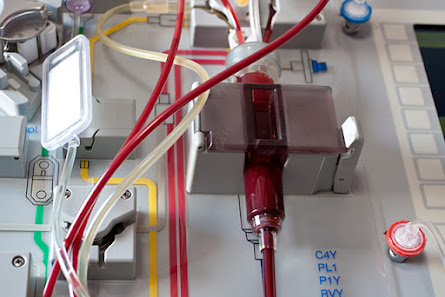Hematology Importance
A clinical trial is controlled trial in mortal subjects
which carry a intervention and observation of the successful effect of that
agreement.
Hematology (American English) or hematology (British English) is the branch of
biology (physiology), pathology, clinical laboratory, internal drug, and
pediatrics that's concerned with the study of blood, the blood- forming organs,
and blood conditions. Hematology includes the study of etiology, opinion,
treatment, prognostic, and forestallment of blood conditions. The lab work that
goes into the study of blood is performed by a Medical Technologist.
Physicians specialized in hematology are known as hematologists. Their routine
work substantially includes the care and treatment of cases with hematological
conditions, although some may also work at the hematology laboratory viewing
blood flicks and bone gist slides under the microscope, interpreting colorful
hematological test results. In some institutions, hematologists also manage the
hematology laboratory. Physicians who substantially work in hematology
laboratories, and utmost generally manage it, are pathologists specialized in
the opinion of hematological conditions, appertained to as hematopathologists.
Hematologists and hematopathologists generally work in confluence to formulate
a opinion and deliver the most appropriate remedy if demanded. Hematology is a
distinct subspecialty of internal drug, separate from but lapping with the
subspecialty of medical oncology. Hematologists may specialize further or have
special interests.



Comments
Post a Comment